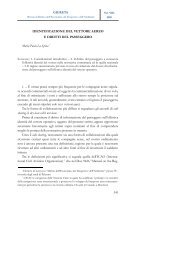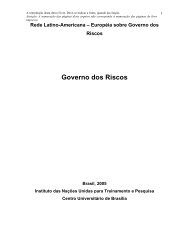The Old and the New Limits to Freedom of Contract in Europe
The Old and the New Limits to Freedom of Contract in Europe
The Old and the New Limits to Freedom of Contract in Europe
You also want an ePaper? Increase the reach of your titles
YUMPU automatically turns print PDFs into web optimized ePapers that Google loves.
258 Maria Rosaria Marella<br />
ERCL 2/2006<br />
Now <strong>in</strong> contract law <strong>the</strong> relationship between <strong>the</strong> <strong>in</strong>dividual <strong>and</strong> <strong>the</strong> community<br />
or <strong>the</strong> state is ma<strong>in</strong>ly designated by <strong>the</strong> def<strong>in</strong>ition <strong>of</strong> freedom <strong>of</strong> contract<br />
<strong>and</strong> its limits. 1 Public policy is used <strong>to</strong> def<strong>in</strong>e a general limit <strong>to</strong> freedom <strong>of</strong><br />
contract. On <strong>the</strong> scene <strong>of</strong> <strong>Europe</strong>an law, however, <strong>the</strong> question <strong>of</strong> limits <strong>of</strong><br />
freedom <strong>of</strong> contract f<strong>in</strong>ds very different <strong>and</strong> contrast<strong>in</strong>g solutions. In this<br />
paper I describe three different modes <strong>of</strong> approach<strong>in</strong>g <strong>the</strong> question, which we<br />
have experienced <strong>and</strong> are currently experienc<strong>in</strong>g <strong>in</strong> <strong>Europe</strong>; three models <strong>of</strong><br />
sett<strong>in</strong>g <strong>the</strong> limits <strong>of</strong> freedom <strong>of</strong> contract that are related <strong>to</strong> three different<br />
ways <strong>of</strong> conceiv<strong>in</strong>g <strong>the</strong> relationship between <strong>the</strong> <strong>in</strong>dividual <strong>and</strong> <strong>the</strong> community.<br />
I will def<strong>in</strong>e <strong>the</strong>m respectively <strong>the</strong> paternalistic, <strong>the</strong> social <strong>and</strong> <strong>the</strong> perfectionist<br />
model. My sense is that all <strong>the</strong>se three models still coexist <strong>in</strong> our<br />
legal systems or at least <strong>in</strong> some <strong>of</strong> <strong>the</strong>m, although I will describe <strong>the</strong>m as<br />
develop<strong>in</strong>g one after ano<strong>the</strong>r <strong>in</strong> a diachronic dimension.<br />
<strong>Europe</strong>an contract law has <strong>to</strong> cope with <strong>the</strong>se models, choose one <strong>of</strong> <strong>the</strong>m or<br />
possibly none <strong>of</strong> <strong>the</strong>m … .<br />
II. Harmonis<strong>in</strong>g <strong>the</strong> <strong>Limits</strong> <strong>of</strong> <strong>Freedom</strong> <strong>of</strong> <strong>Contract</strong>: <strong>the</strong> Techniques<br />
Before <strong>of</strong> describ<strong>in</strong>g <strong>the</strong> three models <strong>and</strong> <strong>the</strong>ir respective problems, I will<br />
talk briefly about <strong>the</strong> possible techniques <strong>of</strong> harmonis<strong>in</strong>g rules or pr<strong>in</strong>ciples<br />
regard<strong>in</strong>g <strong>the</strong> limits <strong>of</strong> freedom <strong>of</strong> contract. By this expression we usually<br />
underst<strong>and</strong> <strong>the</strong> legal problems that m<strong>and</strong>a<strong>to</strong>ry rules <strong>and</strong> general clauses like<br />
<strong>the</strong> bonus mores, ordre public <strong>and</strong> public policy normally confront. Although<br />
not all <strong>the</strong> <strong>Europe</strong>an civil law systems implement <strong>the</strong> same st<strong>and</strong>ards (no<br />
ordre public clause is provided by <strong>the</strong> German BGB, for example) this circumstance<br />
does not make any significant difference as <strong>to</strong> <strong>the</strong> extent <strong>of</strong> freedom<br />
<strong>of</strong> contract. <strong>Limits</strong> <strong>to</strong> freedom <strong>of</strong> contract are enforced <strong>in</strong> <strong>the</strong> different<br />
legal systems <strong>in</strong> order <strong>to</strong> respond <strong>to</strong> several <strong>and</strong> comparable needs: basically<br />
<strong>to</strong> protect <strong>the</strong> public <strong>in</strong>terest <strong>in</strong> efficiency, morality or equity that might or<br />
might not overlap with <strong>the</strong> <strong>in</strong>terests <strong>of</strong> <strong>the</strong> parties, <strong>the</strong> <strong>in</strong>terests <strong>of</strong> one party<br />
represent<strong>in</strong>g a specific(ally protected) social group, or <strong>the</strong> <strong>in</strong>terests <strong>of</strong> third<br />
parties. 2 However, <strong>the</strong> national solutions <strong>to</strong> <strong>the</strong>se needs can be <strong>and</strong> actually<br />
are disparate.<br />
1 S. D. Grimm, ‘Soziale, wirtschaftliche und politische Voraussetzungen der Vertragsfreiheit.<br />
E<strong>in</strong>e vergleichende Skizze’, <strong>in</strong> La formazione s<strong>to</strong>rica del dirit<strong>to</strong> moderno <strong>in</strong> Europa:<br />
atti del terzo congresso <strong>in</strong>ternazionale della Società Italiana di S<strong>to</strong>ria del Dirit<strong>to</strong>, vol III<br />
(Firenze: Olschki, 1977) 1221, 1224: ‘welche Verträge frei abgeschlossen werden können,<br />
charakterisiert darum e<strong>in</strong>e Gesellschaft’.<br />
2 C. G. Paulus / W. Zenker, ‘Grenzen der Privatau<strong>to</strong>nomie’ (2001) Juristische Schulung 1.



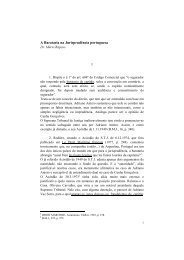




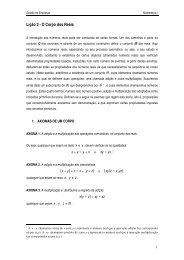

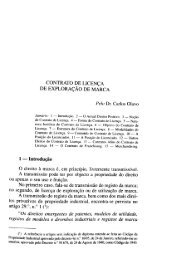
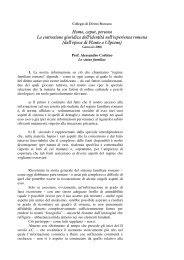
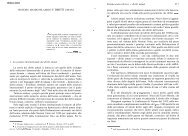

![Luigi Sapio Nozione di islām La parola “islām” [ ] è il mas.dar1 ...](https://img.yumpu.com/15836073/1/185x260/luigi-sapio-nozione-di-islam-la-parola-islam-e-il-masdar1-.jpg?quality=85)
